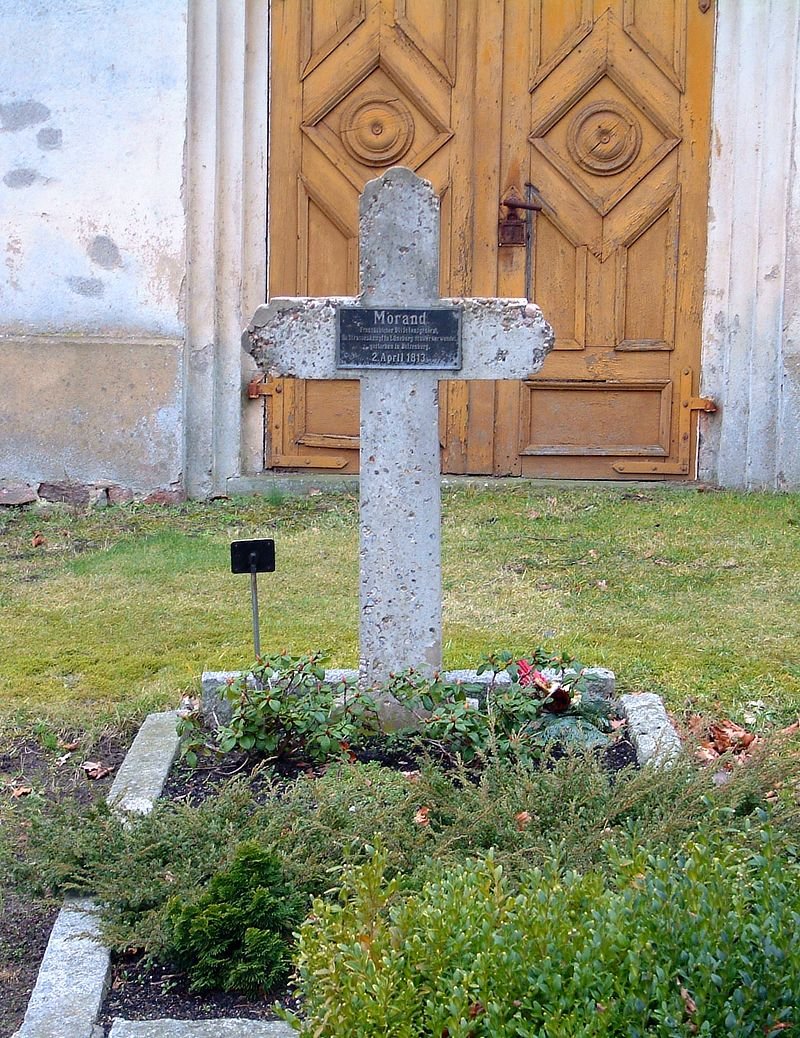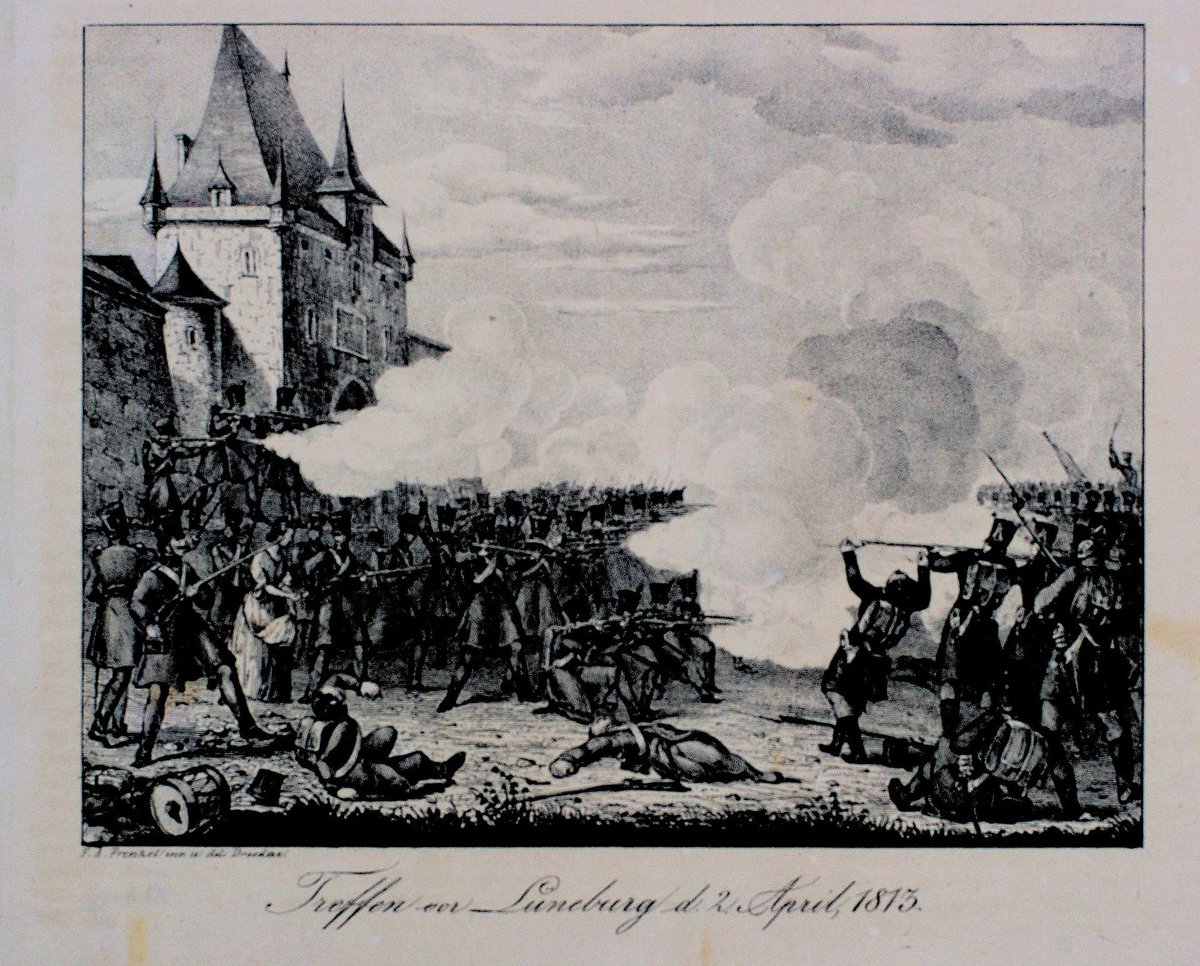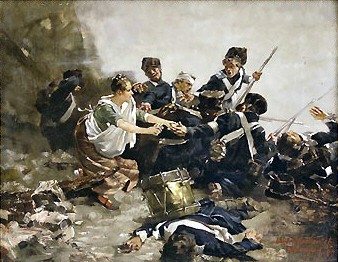#OTD 5 April, 1813, Viceroy Eugene de Beauharnais' army of 40,000 suffered a decisive defeat by the Russo-Prussian army of 27,000 at the Battle of Möckern. The first major battle in the central theater of war in the campaign 1813, it forced Eugene to abandon the Elbe. 
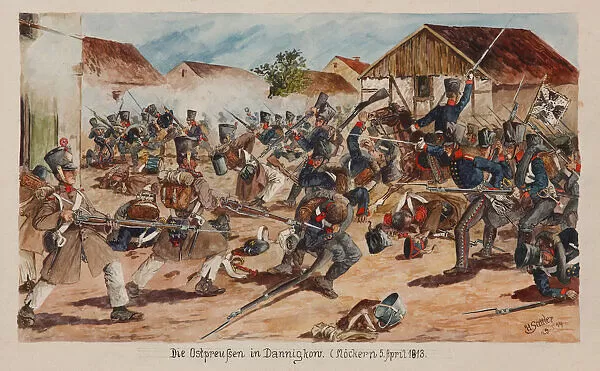
Just before midnight on the 4th, it was decided that the combined army of Borstell, Bülow, Yorck, and Wittgenstein would attack the Grande Armee in two days. But Eugene's decision to reconnoiter the areas west of Möckern changed everything.
His positions lay behind Dannigkow, Vehlitz, and Zeddenick, the extremely marshy fords on the Ehle. These specks provided effective observation points between Magdeburg and Möckern, forcing the Allies to wait for the moment when Eugene would cross the right bank of the Elbe. 
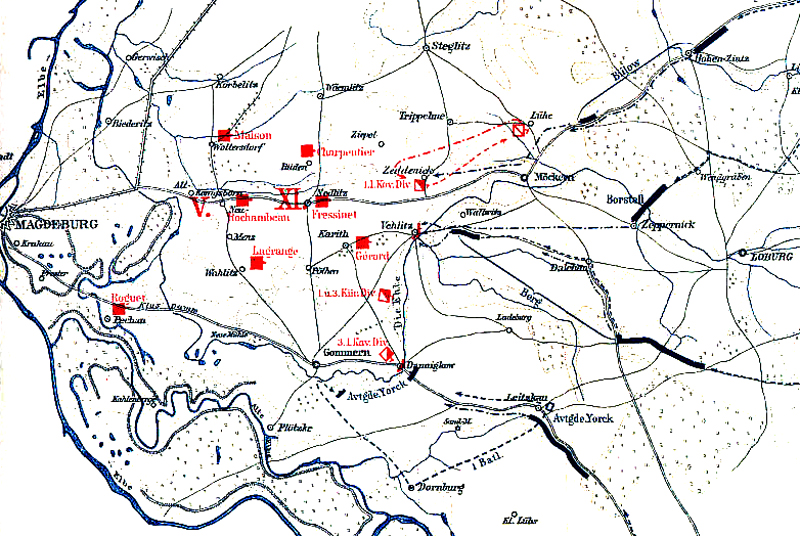
The inconclusive sortie with Borstell two days ago had raised Eugene's perception of threat. Anticipating the enemy to renew the attempt with their whole force, Eugene ordered his generals to fortify the area around these points.
The Ehle bridged Magdeburg with Möckern in two causeways. The one on the left flew via Gerwisch, Burg, and Brandenburg. The boggier one on the right flew from the wetlands of Clussdamm and then forked into the one connecting Nedlitz, Möckern, Ziesar, and Berlin
and another one from the villages of Zerbst, Gommern, and Leitzkau to Rosslau and Wittenburg.
Facing the Ehle, Eugene sent Grenier to occupy a low, narrow knoll, just a league in breadth, with his left at Nedlitz and the right at Gommern.
Facing the Ehle, Eugene sent Grenier to occupy a low, narrow knoll, just a league in breadth, with his left at Nedlitz and the right at Gommern.
They were composed three divisions from Augereau's XI Corps. Together, this central column amounted to 24,000 men and 46 guns.
Lauriston's V Corps formed the left and right wings, stretched between Gerswisch and Woltersdorf.
Lauriston's V Corps formed the left and right wings, stretched between Gerswisch and Woltersdorf.
On the left wing, two divisions respectively occupied Gerswisch and Woltersdorf. The latter was Maison's division of 5,000 men and 18 guns. The right wing at Wahlitz, on the crossroad between the Wittenberg road and Berlin road, was Lagrange's division of 9,500 and 16 guns. 

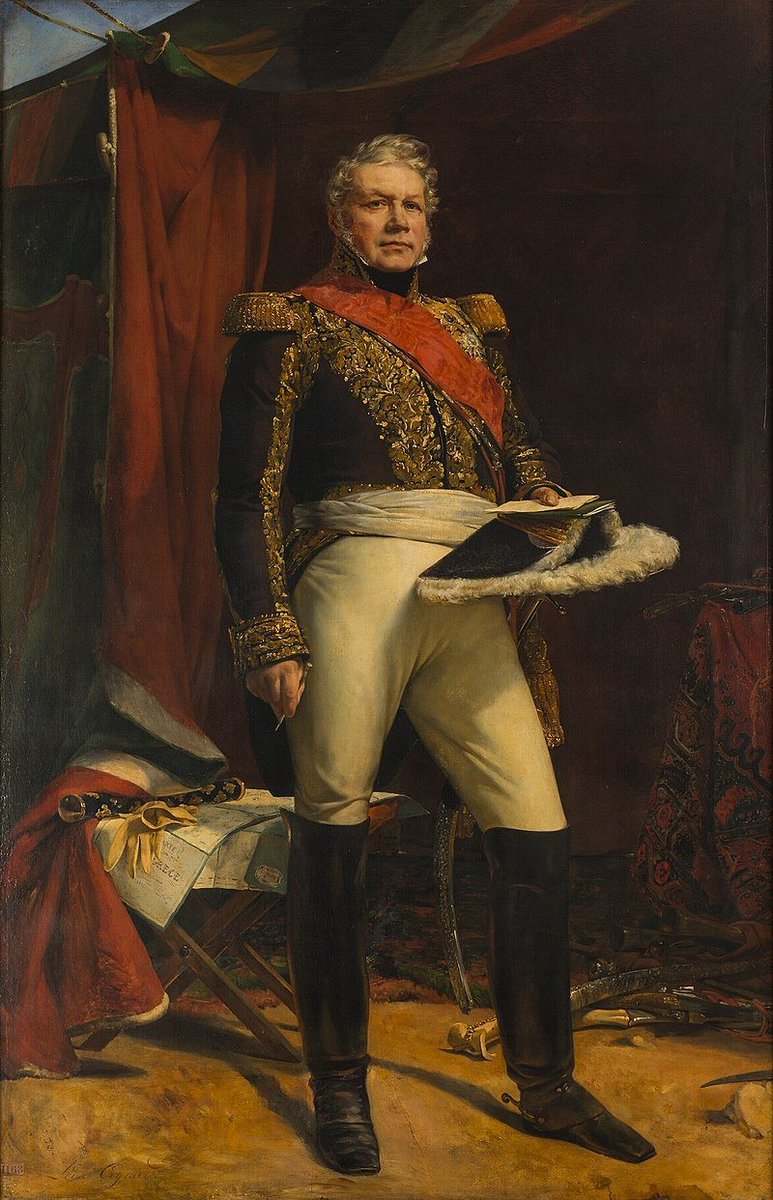
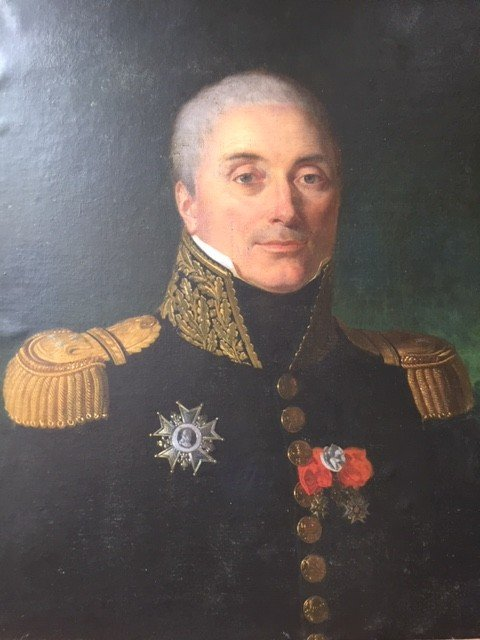
Two cavalry divisions served as the vanguard facing the Ehle. The 1st Light Cavalry Division, entrenched on the impassable fords of Gommern and Dannigkow, secured Eugene's center and right. The 3rd Light Cavalry Division, at Zeddenick, defended the rightmost flank of the army.
At the rear of the right wing, between Magdeburg and Wahlitz, were the Division Rochambeau of XI Corps (8,000 men, 16 guns) and the Division Roguet of the Young Guard (3,200 men, 14 guns). As reserves, they secured the Clussdamm near Pechau.
In this way, Eugene placed the army of 40,000 in the position to make the best out of the Ehle. The problem, however, was that the maneuver began too late, when the Russians were at their most vigilant.
(Eugene to Nap, 4 April 1813; Charras; Hofschroer, Lutzen & Bautzen 1813)
(Eugene to Nap, 4 April 1813; Charras; Hofschroer, Lutzen & Bautzen 1813)
To the Allies, who had been perceiving the Grande Armee as avoiding engagements, Eugene's movements appeared to be a withdrawal towards Magdeburg. When this report reached Wittgenstein in the morning, he countermanded the plan from the 4th and ordered an immediate attack.
At 11 a.m., Yorck received a dispatch from Wittgenstein, calling him to leave Zerbst right now. He, in turn, wrote to Borstell and Bülow in Hohenziaz, still waiting for their forces to unite before advancing on Möckern:
"[T]he enemy is behind Dannigkow, Vehlitz and Zepernik, Wittgenstein is on the march to attack him today." In essence, Wittgenstein was pushing the army to mobilize when they were not even completely assembled-a gamble which was met with approval by the other generals.
The plan of action was renewed as follows:
1. The first column, Yorck's force of 8,000 men, marches on Dannikow to face Eugene's center-right at Gommern. Hünerbein's vanguard, composed of three East Prussian Hussar battalions, two sq. of hussars, three dragoons, and 12 cannons,
1. The first column, Yorck's force of 8,000 men, marches on Dannikow to face Eugene's center-right at Gommern. Hünerbein's vanguard, composed of three East Prussian Hussar battalions, two sq. of hussars, three dragoons, and 12 cannons,
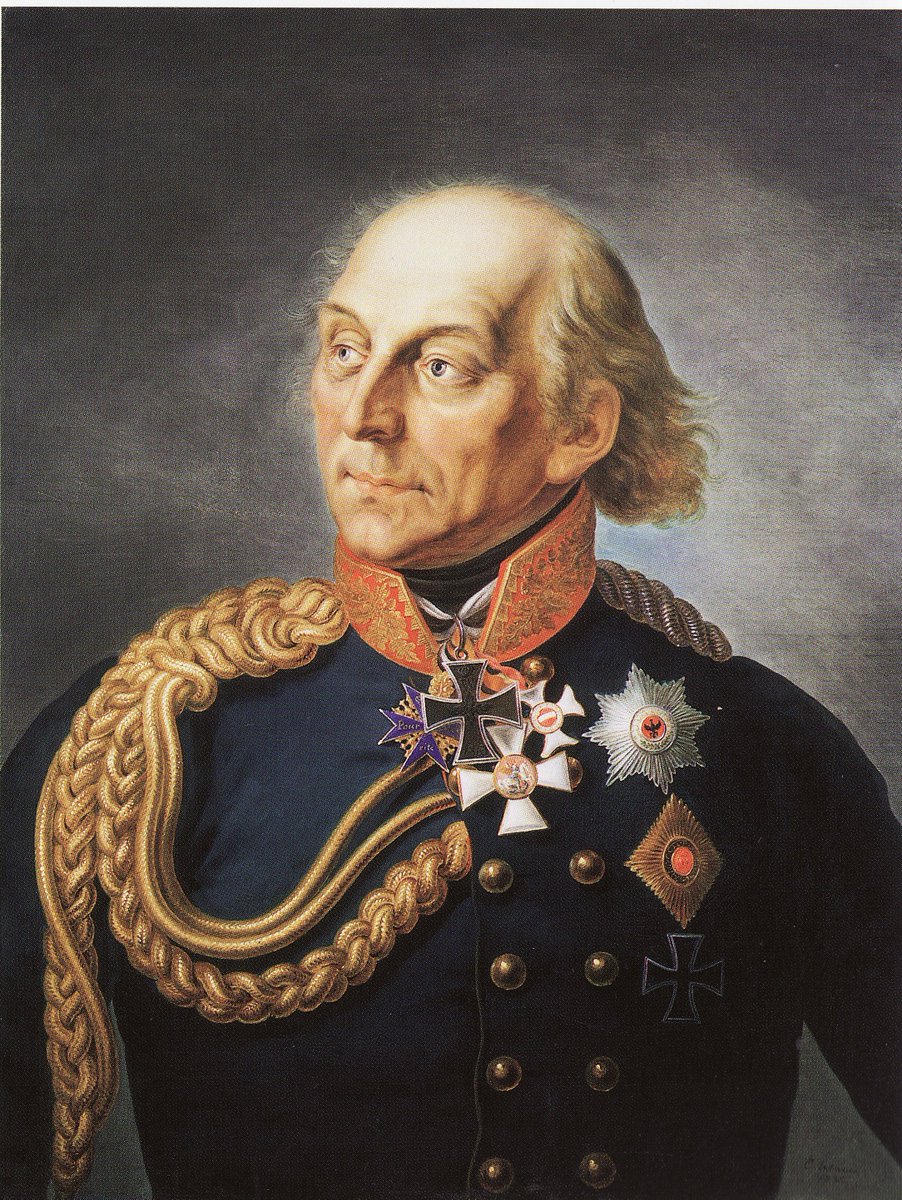
proceeds from the right wing and occupies the height of Leizkau, threatening the road to Magdeburg. From the left wing, Major Crammond leads a battalion of fusiliers and 20 hussars to seize the height of Dornberg, intercepting the French right wing in Gommern.
Borstell, with his force of 4,000 men, would set out from Leizkau at 2 p.m., following Yorck.
2. The second column, 8,000 men under Lieutenant-General Berg, marches on Velitz, with General Roth's vanguard moving via Liezo and Dalchow and en route uniting with Borstell's forces.
2. The second column, 8,000 men under Lieutenant-General Berg, marches on Velitz, with General Roth's vanguard moving via Liezo and Dalchow and en route uniting with Borstell's forces.
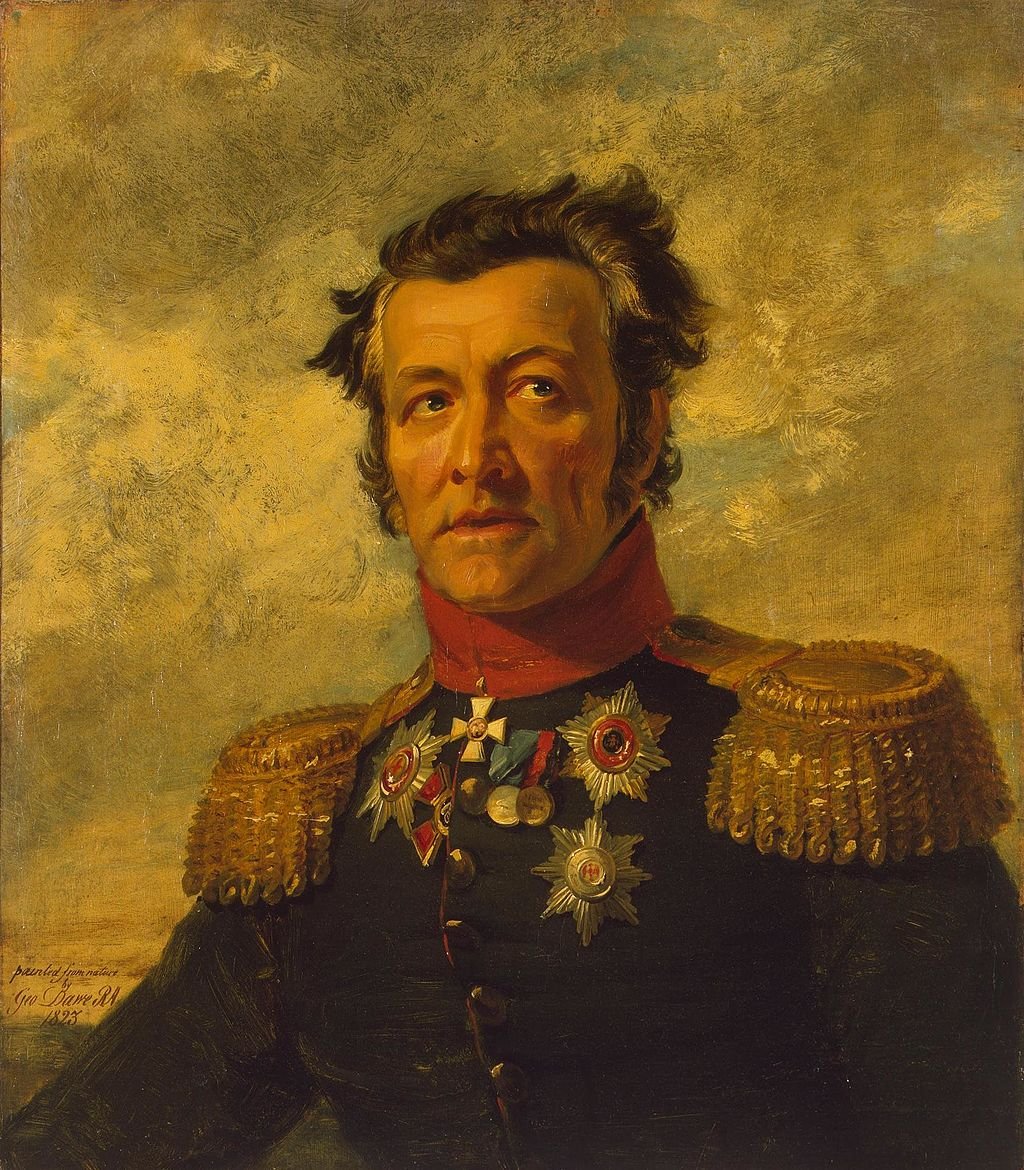
3. The third, the 7,000 under Lieutenant General Bülow, would leave Ziesar immediately and advance on the main road; General Oppen's intercepts the enemy's left wing.
As soon as Yorck sent the courier, he ordered the army to move out of Zerbst.
(Von Plotho; Droysen; Charras)
As soon as Yorck sent the courier, he ordered the army to move out of Zerbst.
(Von Plotho; Droysen; Charras)
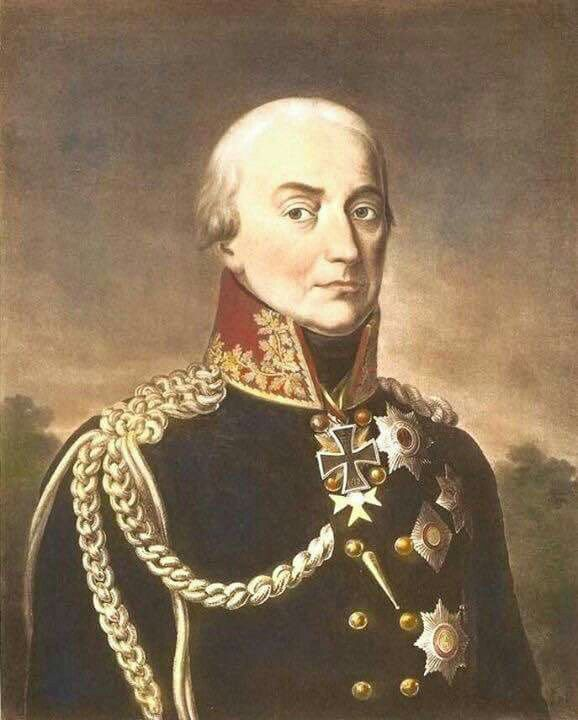
But due to the improvised nature of the strategy, their movements showed a dangerous lack of consistency. Lieutenant General Horn, who could have joined Hünerbein, reached Zberst late. Five leagues away from the vanguard, he had no choice but to move alongside the main force.
Nevertheless, Wittgenstein insisted in seeing the battle take place. Hünerbein reached Leizkau at noon, and an hour later, received Wittgenstein's order to attack Dannigkow.
With a small army of 27,000, and even a smaller vanguard, they threw themselves at the Grande Armee.
With a small army of 27,000, and even a smaller vanguard, they threw themselves at the Grande Armee.
At the same time, the vanguard cavalry of Lagrange's division took notice of them. The two squadrons of the 2nd Leib-husaren Regiment momentarily overwhelmed their French counterpart, but were repulsed by two battalions of well-disciplined tiralleurs emerging from the willows.
A counter-charge drove them back into the woods, and the French cavalry to the village of Dannigkow.
At 2 p.m., Hünerbein received the order to clear Dannigkow of the enemy. On his left, Major Crammond steadily marched towards Dornberg.
At 2 p.m., Hünerbein received the order to clear Dannigkow of the enemy. On his left, Major Crammond steadily marched towards Dornberg.
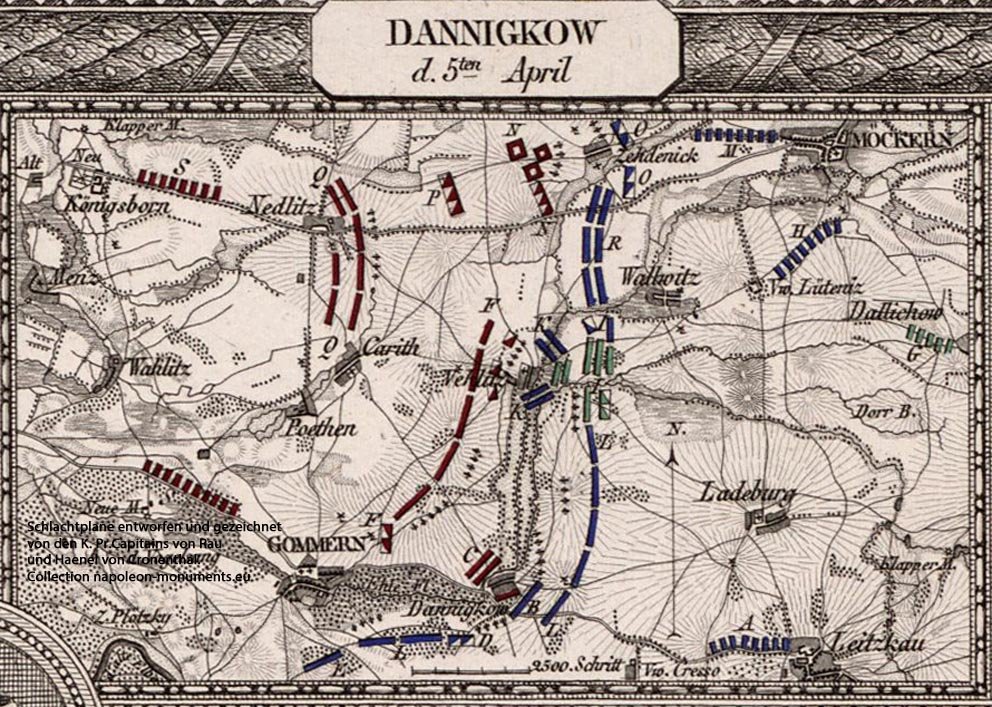
At Hünerbein's order, two battalions of Prussian skirmishers marched past the first houses in Dannigkow and came across a bridge across the Ehle. There, they came under a shower of volleys from the barracks and the other side of the river.
Eugene, who had been inspecting the field around his headquarter, was alarmed by the battle noises across the Ehle. Realizing the seriousness of the situation, he ordered Grenier to send two companies of the 134th Line Regiments to Dannigkow, and as many to Velitz and Zeddenick.
Seeing his men unable to march on Gommern, Hünerbein made a decision as adventurous as Wittgenstein's plan:
"Now, the matter has obviously become a subject of honor, a sacred cause for the Fatherland, and I could no longer obey the order to avoid combat."
"Now, the matter has obviously become a subject of honor, a sacred cause for the Fatherland, and I could no longer obey the order to avoid combat."
Stepping outside his zone of responsibility-to wait for the main army-, he sent out two battalions of the 1st East Prussian Infantry under Major Lobenthal to attack the French right, and ordered Lieutenant Hensel to simultaneously unlimber four pieces of his horse artillery.
Thanks to Eugene's choice of ground, Lobenthal's troops, supported by Hünerbein's cavalry, became helplessly caught in the boggy ground. But Hensel's cannonade helped contain the French reinforcements streaming from Gommern.
Lobenthal's first attempt was mercilessly repulsed by four companies of French grenadiers who, according to Eugene, forced the Prussians to "retreat promptly." In the thick of combat, Lobenthal launched a three-pronged on Dannigkow, during which his men
broke into the barracks and viciously bayonetted the remaining enemy tiralleurs. As the Prussians finally took hold of the bridge, Grenier ordered his men, now exposed in the open ground, to retreat by 300 paces, which encouraged a second bayonet charge by Lobenthal.
Crammond, whose men had been faltering before Gommern, now proceeded in conjunction with the movement on the right. Since the Major "didn't want to have any mercy on them" and did not have "enough time to deal with them," he emulated Lobenthal's bayonet charge.
Two hours into the gruelling exchange of volleys, Hensel's cannonade came to do more than securing the flimsy bridge: summoning the whole army on time.
At 4 p.m., Yorck and Wittgenstein reached Leizkau, where they heard the din.
At 4 p.m., Yorck and Wittgenstein reached Leizkau, where they heard the din.
Just at the same hour, Bulow and Berg were startled by the sound, and also rushed to support the main army from the right side.
Bulow sent Borstell to march from Glonia to Velitz, Berg's vanguard had been halted before the menacing masses of Red Hussars and chasseurs.
Bulow sent Borstell to march from Glonia to Velitz, Berg's vanguard had been halted before the menacing masses of Red Hussars and chasseurs.
Immediately effecting a junction with Berg, Borstell ordered an attack from three sides. General Meyer's 4th battalion of East Prussian Fusiliers enfiladed the enemy's left, and the 2nd battalion of Pomeranian Grenadiers, marching 50 steps forward, assaulted the right. 
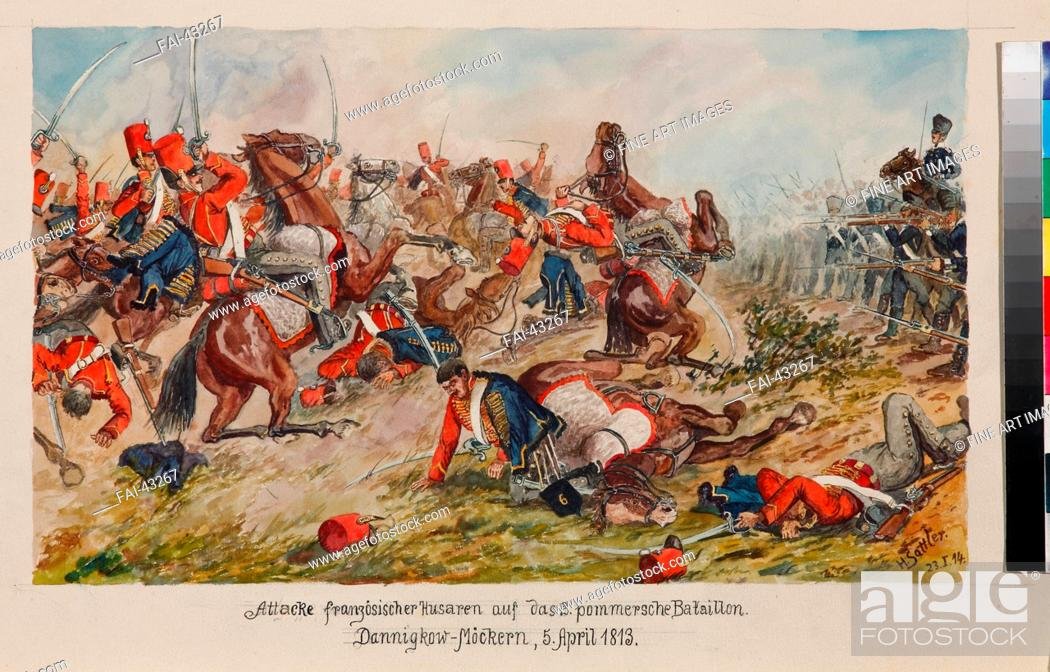
Completing the envelopment were the 2nd Jager battalion and Russian militia under General Roth, supported by some Prussian skirmishers.
From this side, too, the French were seen abandoning the Ehle; they were hunted down by West Prussian dragoons and the Grodno Hussars.
From this side, too, the French were seen abandoning the Ehle; they were hunted down by West Prussian dragoons and the Grodno Hussars.
When the Allies crossed the Ehle, they were charged by a French cavalry of 1,000 men. Bulow, seeing this, made an inconceivable order to Major Platen: to lead a counter-charge with only 200 dragoons.
Without questioning, the officer rallied his horsemen:
Without questioning, the officer rallied his horsemen:
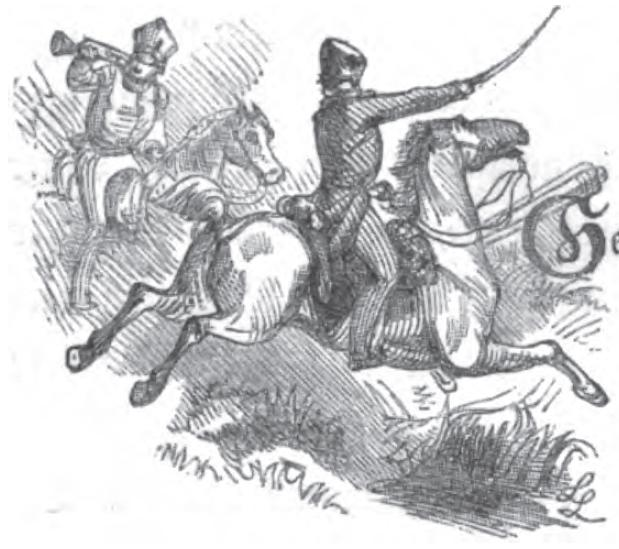
"A good dragoon must have the whistle still blowing, even after the roll call!"
The result was an unbelievable scene in which a small cavalry drove away the enemy five times larger than itself. The Pomeranian battalion, forming squares, backed up their resistance.
The result was an unbelievable scene in which a small cavalry drove away the enemy five times larger than itself. The Pomeranian battalion, forming squares, backed up their resistance.
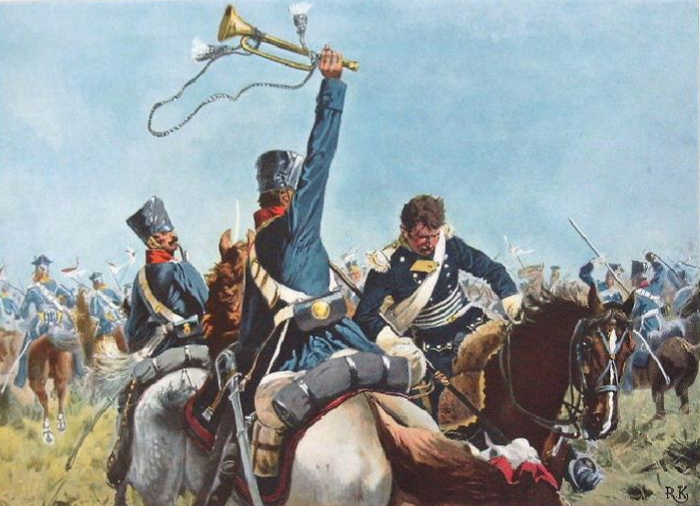
The final decisive blow came when Bulow ordered Oppen to assist their defense. Having arrived late, his cavalry of 1,200 men galloped through the bullets from both sides and made a big jump across a shallow ditch on the Ehle.
Velitz and Zeddenick fell to the Allies.
Velitz and Zeddenick fell to the Allies.
The battle began to wane by nightfall, around 6 p.m. But General Zucchi's division of XI Corps sustained their defense against the "troops three times more numerous" than themselves.
(Charras; Forster; Hunerbein; Crammer; Droysen; Plotho; Eugene to Napoleon, 5 March 1813)
(Charras; Forster; Hunerbein; Crammer; Droysen; Plotho; Eugene to Napoleon, 5 March 1813)
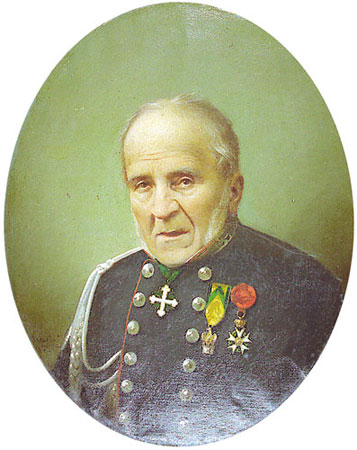
The result, despite the highly disorganized plan of action, was a sweeping victory for the Russians and Prussians. Eugene's army, despite its advantageous position and numerical superiority, lost 2,200 men, including General Grenier who received a mortal wound on his jaw.
The 1st Light Cavalry Division was virtually annihilated in Velitz, exacerbating the chronic lack of horses in the French army.
Most importantly, the battle forced Eugene to abandon the Elbe. Retreating in the dark, he and Lauriston made a humiliating retreat towards Magdeburg.
Most importantly, the battle forced Eugene to abandon the Elbe. Retreating in the dark, he and Lauriston made a humiliating retreat towards Magdeburg.
In contrast, the Allies lost barely 500 men, an astounding feat which instilled them with unbridled confidence. Hünerbein, whose measured insubordination deserves the most credit for the victory, recounted the glorious moment:
"It was the first very serious battle in the war, and victory or death obviously had to be the order of the day here; weak as I was, I had to count on the old courage of the Prussian troops and support of the commanders who led me."
(Eugene to Nap, Ibid; Hofschroeder; Droysen)
(Eugene to Nap, Ibid; Hofschroeder; Droysen)
Scharnhorst and Kutuzov, however, worried about the potentially disquieting impact of the battle. At 11 p.m., the Chief of Staff had to pursuade for the officers to remain still until further orders. Of course, he could not prevent the news of victory from reaching Blücher.
Blücher, after confirming that his vanguard has reached the Mulde on the same day, wrote affectionately to Amalie:
"We have arrived at the Mulde. Enemy troop masses have assembled at Hof, Würzburg, and Erfurt. We are on our guard against them.
"We have arrived at the Mulde. Enemy troop masses have assembled at Hof, Würzburg, and Erfurt. We are on our guard against them.
The army that Napoleon will personally command is probably the one between Magdeburg and Halberstadt. The other troop masses are of poor composition."
Although Scharnhorst was now back to his Penig headquarter, he could not restrain the general's ecstatic reaction to the battle.
Although Scharnhorst was now back to his Penig headquarter, he could not restrain the general's ecstatic reaction to the battle.
Kutuzov denounced Blücher's conduct, most notably his frequent issueing of proclamations in Saxony, as an "politically irresponsibl[e]" act of disregarding the King of Saxony as well as the Tsar. Already, Frederick Augustus was questioning Wintzingerode about the
Russians' intentions in his country, whose neutrality was being formally respected. He instructed the general to explain to the King, that Alexander lets the German princes choose between "acting freely" or being "subservient to a foreign power"
Russians' intentions in his country, whose neutrality was being formally respected. He instructed the general to explain to the King, that Alexander lets the German princes choose between "acting freely" or being "subservient to a foreign power"
(Blucher to Amalie, 5 April 1813; Kutuzov to Wintzingerode, 5 April 1813; Leggiere, Napoleon and the Struggle for Germany)
-The End-
@threadreaderapp Unroll
50/50
50/50
• • •
Missing some Tweet in this thread? You can try to
force a refresh

 Read on Twitter
Read on Twitter

